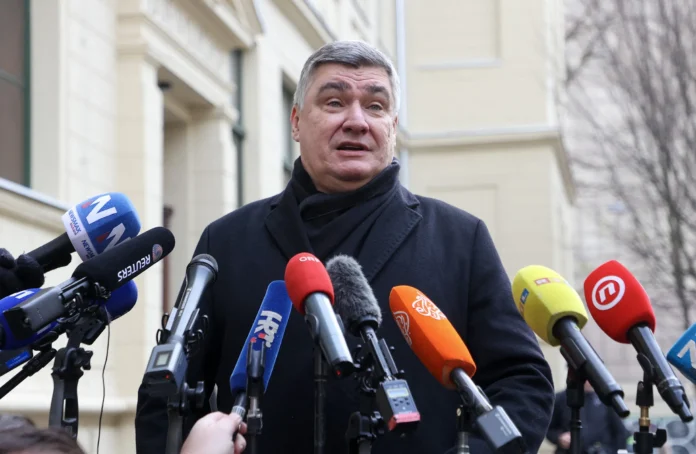Croatia’s incumbent President, Zoran Milanovic, has secured a second term in office after defeating Dragan Primorac, the candidate from the ruling conservative HDZ party, in a run-off election held on Sunday. Milanovic, who is known for his outspoken criticism of both the European Union (EU) and NATO, garnered 74.6% of the vote, while Primorac received around 25.3%, according to near-complete official results from Croatia’s state election authorities.
Milanovic’s Political Stance
Milanovic, 58, is a prominent Croatian figure who has gained recognition for his vocal opposition to Western military support for Ukraine. His confrontational communication style, often likened to that of US President-elect Donald Trump, has made him a polarizing figure in Croatian and European politics. Throughout the campaign, Milanovic criticized the EU, describing it as “non-democratic in many ways” and led by unelected officials. He expressed frustration with the EU’s approach to dissent, which he compared to “mental violence” by labeling dissenting opinions as “enemies.”
In his victory speech, Milanovic reaffirmed his desire for change within the EU, stating that the current direction is not the “modern Europe” he wishes to live in and work towards. His remarks highlighted his commitment to altering the EU’s trajectory and challenging its internal dynamics.
Implications for Croatian Politics
Milanovic’s victory sets the stage for continued political tensions with Croatian Prime Minister Andrej Plenkovic, with whom he has had a contentious relationship throughout his first term. Despite the largely ceremonial role of the Croatian president, Milanovic’s re-election is significant as it makes him only the third Croatian president in history to secure a second term, joining former Presidents Franjo Tudman and Stjepan Mesic.
As president, Milanovic holds substantial political influence, serving as the country’s supreme military commander. However, it is the prime minister who represents Croatia at the European Council in Brussels, limiting Milanovic’s role in direct EU affairs.


